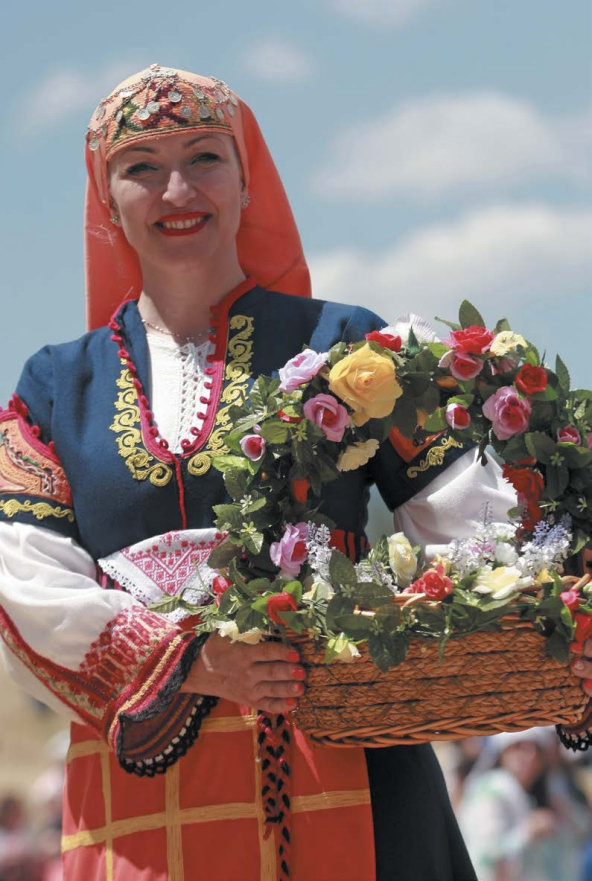Published in 2017 by Cavendish Square Publishing, LLC
243 5th Avenue, Suite 136, New York, NY 10016
Copyright 2017 by Cavendish Square Publishing, LLC
Third Edition
No part of this publication may be reproduced, stored in a retrieval system, or transmitted in any form or by any meanselectronic, mechanical, photocopying, recording, or otherwisewithout the prior permission of the copyright owner. Request for permission should be addressed to Permissions, Cavendish Square Publishing, 243 5th Avenue, Suite 136, New York, NY 10016. Tel (877) 980-4450; fax (877) 980-4454.
Website: cavendishsq.com
This publication represents the opinions and views of the author based on his or her personal experience, knowledge, and research. The information in this book serves as a general guide only. The author and publisher have used their best efforts in preparing this book and disclaim liability rising directly or indirectly from the use and application of this book.
CPSIA Compliance Information: Batch #CS17CSQ
All websites were available and accurate when this book was sent to press.
Library of Congress Cataloging-in-Publication Data
Names: Stavreva, Kirilka, author. | Quek, Lynette, author. | Mattern, Joanne, 1963- author.
Title: Bulgaria / Kirilka Stavreva, Lynette Quek, and Joanne Mattern.
Description: New York : Cavendish Square Publishing, 2017. | Series: Cultures of the world | Includes bibliographical references and index.
Identifiers: LCCN 2016052798 (print) | LCCN 2016054779 (ebook) | ISBN 9781502626097 (library bound) | ISBN 9781502626042 (E-book)
Subjects: LCSH: Bulgaria--Juvenile literature.
Classification: LCC DR55 .S762 2017 (print) | LCC DR55 (ebook) | DDC 949.9--dc23
LC record available at https://lccn.loc.gov/2016052798
Editorial Director: David McNamara
Editor: Kristen Susienka
Copy Editor: Nathan Heidelberger
Associate Art Director: Amy Greenan
Designer: Alan Sliwinski
Production Coordinator: Karol Szymczuk
Photo Research: J8 Media
PICTURE CREDITS
The photographs in this book are used with the permission of: Cover Travel Pictures/Alamy Stock Photo; p. Taratorki/Shutterstock.com.
Printed in the United States of America
 CONTENTS
CONTENTS
BULGARIA TODAY |
1. GEOGRAPHY | Bulgarias three regions A land of caves and beaches A variety of seasons A land of rivers, lakes, and springs Plants and animals Cities and towns |
2. HISTORY | First Bulgarian Kingdom Boris Is rule The rise of Bulgarian culture Byzantine conquest A new Constantinople Conquest and persecution The rise of nationalism A violent change Issues over Macedonia Dark days of war The Soviets take control A difficult road to democracy |
3. GOVERNMENT | Journey toward democracy A new constitution Regional and local government Many political parties Elections bring change |
4. ECONOMY | Shocking reforms Soviet industry Industry today Changes to the fishing industry Agricultural strengths and weaknesses The service industry Modern transportation |
5. ENVIRONMENT | Progress and danger Damage from the skies Where to put the waste Water supply woes The dirtiest river in Europe A land of biodiversity Protecting the land Saving endangered plants and animals |
6. BULGARIANS | Creating the Bulgarian people Preserving culture Turks in Bulgaria The plight of the Roma Many minorities Changing populations Leaving for the West Struggles for equality A well-dressed people |
7. LIFESTYLE | Changing marriage trends Extended families Marriage and living arrangements Equality for men and women Children: the center of the family Living at home Stranger or friend? Life in cities and towns Enjoying the country life Education is key |
8. RELIGION | Politics at war with religion Eastern and Western controversy The historical role of the church Other key religious groups |
9. LANGUAGE | A language to be proud of Alphabet, grammar, and dialects Speaking with the whole body The language of names Public conversations |
10. ARTS | Traditional folk music and dance Treasures of the medieval church Early Bulgarian literature Art meets politics Artists break free Digging into the past |
11. LEISURE | Working for the weekend A nation of coffee drinkers Vacations at the beach or in the mountains Skiing and other sports A love of reading Sly Peter and Bai Ganyu |
12. FESTIVALS | Changing Independence Day Baba Marta and the coming of spring Honoring education Ancient festival traditions Early spring holidays Celebrating life and death |
13. FOOD | Meals big and small Mealtime manners Changing seasons, changing meals Local variations |
MAP OF BULGARIA |
ABOUT THE ECONOMY |
ABOUT THE CULTURE |
TIMELINE |
GLOSSARY |
FOR FURTHER INFORMATION |
BIBLIOGRAPHY |
INDEX |

 BULGARIA TODAY
BULGARIA TODAY
F OR MANY YEARS, BULGARIA WAS A MYSTERY TO THE WORLD. Because of its restrictive Communist government, most people could not travel there, and little was known about what went on inside the countrys borders. However, with the fall of Communism in the late 1980s and early 1990s, people have learned that there is much more to Bulgaria than its Communist past. Its cities and towns are a charming mix of ancient and modern, boasting layer upon layer of a rich and exciting heritage.
Bulgaria is a stronghold of Slavic traditions and language, where elements of a deeply rooted folk culture are preserved. It is also a land of mythical beauty, with a long and dramatic history. Its people are resilient and courageous. Over the centuries, they have risen above a succession of repressive empires, including the Roman, Byzantine, and Ottoman. The influence of its multiple cultures can be tasted in Bulgarian cuisine, heard in its music, and seen in its ancient architecture. At the same time, Bulgaria is a part of the modern world. This blend of the oldest and the newest is Bulgaria today.
The physical landscape of Bulgaria is amazingly beautiful. It is a land of great diversity, from fertile, rolling plains to high mountains to the coast of the sea. Many different animals and plants make their home in Bulgaria, including many not found anywhere else. Unfortunately, years of heavy and poorly managed industry, combined with a lack of waste treatment and laws against pollution, have severely damaged much of Bulgarias environment and put many of the nations natural resources in danger.
A woman wearing a traditional folk costume enjoys a festival in Bulgaria.
Bulgaria also has a deep and rich history. Its location at the heart of Eastern Europe made it the crossroads for trading routes during ancient times. This easy accessibility led to a number of different ethnic groups and cultures coming to Bulgaria, creating a wave of conquests that led to a diverse population. A major part of the nations twentieth-century history was dictated by the Communists, who came to power after World War II, when the Soviet Union took control of Eastern Europe. Life was harsh and gray under Communist rule, but the Bulgarian people did not lose their spirit. By 1989, Communist regimes all over Europe were toppling, and Bulgaria began the uncertain but hopeful process of becoming a democracy.

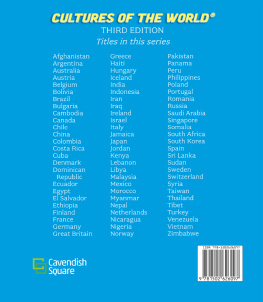



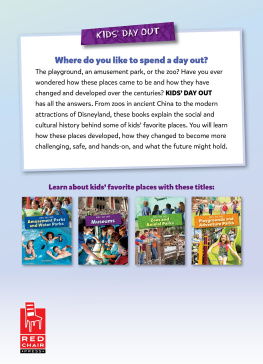


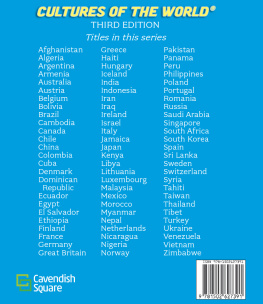

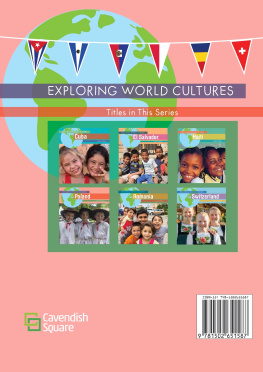
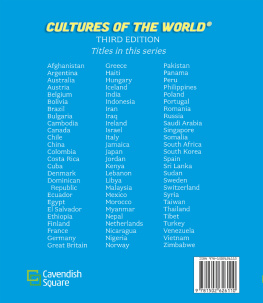

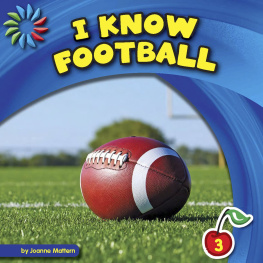
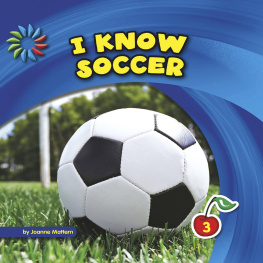

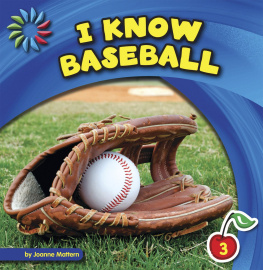
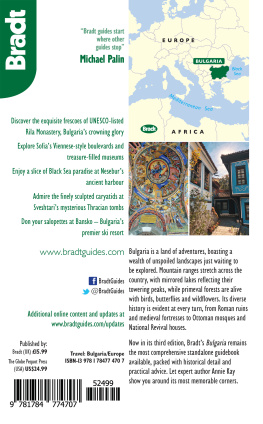



 CONTENTS
CONTENTS
